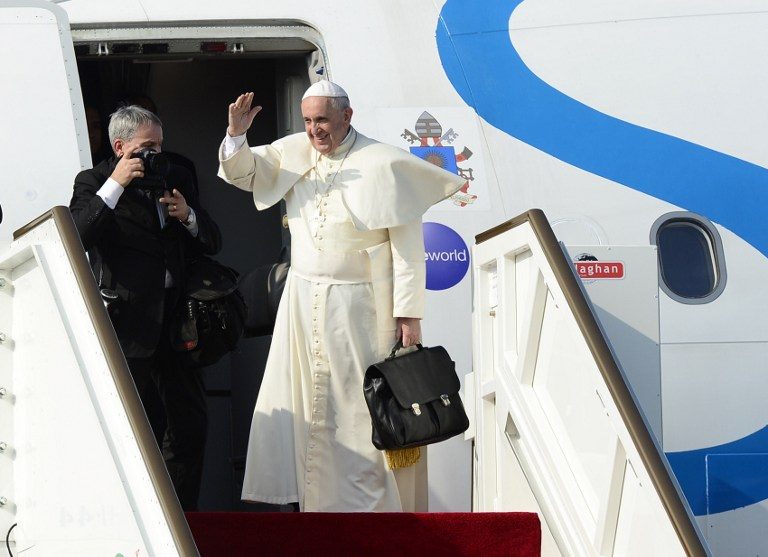SUMMARY
This is AI generated summarization, which may have errors. For context, always refer to the full article.

VATICAN CITY – Pope Francis’s visit to the violence-hit Central African Republic (CAR) remains “on the program,” the Vatican said Monday, November 2, but the trip planned for late November would have to be cancelled if fighting in the capital intensifies.
“The pope’s visit to CAR remains on the program. Francis greatly desires to go there,” the Vatican’s deputy spokesman Ciro Benedettini told Agence France-Presse.
The Pope is expected in the chronically unstable former French colony from November 28 to 29 during a much-anticipated visit to Africa which will also see him travel to Kenya and Uganda. The 6-day tour, his first to the continent, will begin on November 25.
But Francis hinted this weekend that part of the journey may have to be scrapped, saying he “hoped” to visit CAR despite a new spike in violence in the capital Bangui between Christians and Muslims.
The trip had previously been definite.
At least 61 people were killed and over 300 injured in sectarian clashes in late September in Bangui before UN and French peacekeeping forces intervened to restore calm.
The violence between vigilantes from the Christian majority and members of the Muslim minority reignited at the weekend in Bangui, when least five people were killed and over 100 homes were torched.
Francis, 78, is scheduled to tour a camp for people displaced by the violence and visit a mosque in one of the most dangerous areas of Bangui before celebrating mass in a stadium.
CAR’s interim president Catherine Samba-Panza on Monday called on the international forces stationed in the country to undertake “vigorous action to make Bangui a sanctuary” ahead of the papal visit.
The Central African Republic has suffered recurring bouts of religious bloodletting since the ousting in March 2013 of then president Francois Bozize, a Christian, by mainly Muslim Seleka rebels, sparked months of violence.
The latest clashes have cast a shadow over plans by the transitional authorities to hold a constitutional referendum and kick off the first stage of two-step presidential and parliamentary elections by the end of the year.
Radio Vatican expert Luis Badilla said “the most delicate issue… concerns the possible reaction from extremist Islamic groups that are not under the control of moderate Muslim leaders, in particular where large crowds are expected.”
Such crowds are likely for his scheduled mass at the cathedral, prayer vigil with young people, visit to Koudoukou mosque and closing stadium mass.
Roman Catholic Archbishop Dieudonne Nzapalainga said a Vatican envoy carrying out a reconnaissance of the area last week together with government representatives received death threats at the mosque. – Rappler.com
Add a comment
How does this make you feel?
There are no comments yet. Add your comment to start the conversation.